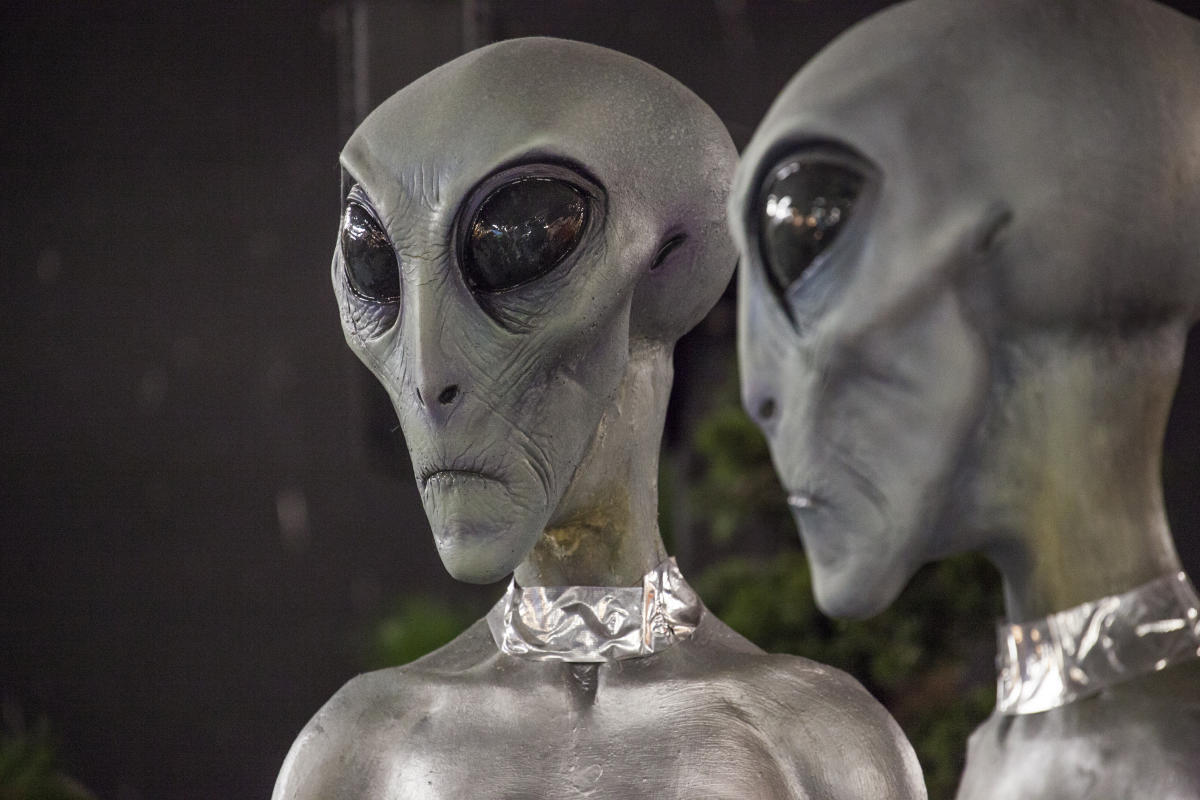
The Magnificat, also known as the Song of Mary, is a hymn of praise found in the Gospel of Luke. It is one of the oldest Christian hymns and has been a significant part of Christian liturgy for centuries. Mary sings this song during her visit to Elizabeth, expressing joy and gratitude for God's blessings. The Magnificat highlights themes of social justice, divine mercy, and the reversal of human fortunes. Its poetic language and profound message have inspired countless musical compositions, artworks, and theological reflections. Whether you're a history buff, a music lover, or someone curious about religious texts, the Magnificat offers a rich tapestry of insights and inspiration.
The Magnificent World of Facts
Facts can be fascinating, surprising, and sometimes downright strange. They help us understand the world better and often leave us with a sense of wonder. Here are 40 incredible facts that will blow your mind.
Nature's Wonders
Nature never ceases to amaze with its beauty and complexity. Here are some facts that highlight the wonders of the natural world.
-
Bananas are berries, but strawberries aren't. Botanically speaking, bananas qualify as berries, while strawberries do not. This is due to the way they develop from the flower's ovary.
-
A day on Venus is longer than a year on Venus. Venus takes about 243 Earth days to rotate once on its axis but only 225 Earth days to complete an orbit around the Sun.
-
Honey never spoils. Archaeologists have found pots of honey in ancient Egyptian tombs that are over 3,000 years old and still perfectly edible.
-
Octopuses have three hearts. Two pump blood to the gills, while the third pumps it to the rest of the body. When they swim, the heart that delivers blood to the body stops beating.
-
A single bolt of lightning contains enough energy to toast 100,000 slices of bread. Lightning is incredibly powerful, with each bolt carrying up to one billion volts of electricity.
Human Body Marvels
The human body is a complex and fascinating machine. Here are some facts that showcase its incredible capabilities.
-
Your nose can remember 50,000 different scents. The human olfactory system is highly sensitive and capable of distinguishing a vast array of smells.
-
Humans are the only animals that blush. Blushing is a unique human response, triggered by emotions such as embarrassment or shame.
-
Your bones are stronger than steel. Ounce for ounce, human bone is stronger than steel. A cubic inch of bone can bear a load of 19,000 pounds.
-
You produce about a liter of mucus every day. Mucus plays a crucial role in protecting and moisturizing the respiratory system.
-
The human brain generates enough electricity to power a small light bulb. The brain produces about 20 watts of electrical power, enough to light up a small bulb.
Animal Kingdom Surprises
Animals are full of surprises, with unique behaviors and adaptations. Here are some facts that highlight the diversity of the animal kingdom.
-
Cows have best friends. Studies have shown that cows form close bonds with certain other cows and can become stressed when separated from them.
-
A group of flamingos is called a "flamboyance." Flamingos are known for their striking pink color and social behavior, often gathering in large, flamboyant groups.
-
Ostriches can run faster than horses. Ostriches can reach speeds of up to 45 miles per hour, making them the fastest-running birds on land.
-
A snail can sleep for three years. Snails can enter a state of hibernation or estivation, allowing them to survive long periods without food or water.
-
Elephants are the only animals that can't jump. Due to their massive size and weight, elephants are physically incapable of jumping.
Space Oddities
Space is vast and full of mysteries. Here are some facts that highlight the wonders of the cosmos.
-
There are more stars in the universe than grains of sand on Earth. The observable universe contains an estimated 100 billion galaxies, each with millions or billions of stars.
-
A day on Mercury lasts about 59 Earth days. Mercury has a slow rotation period, taking nearly 59 Earth days to complete one rotation on its axis.
-
Neutron stars are incredibly dense. A sugar-cube-sized amount of neutron-star material would weigh about a billion tons on Earth.
-
The footprints on the Moon will last millions of years. With no atmosphere, wind, or water to erode them, the footprints left by astronauts on the Moon will remain for millions of years.
-
There is a planet made of diamonds. 55 Cancri e, a planet 40 light-years away, is believed to be composed largely of carbon in the form of diamond.
Historical Tidbits
History is filled with fascinating events and characters. Here are some facts that shed light on the past.
-
Cleopatra lived closer in time to the Moon landing than to the construction of the Great Pyramid. Cleopatra lived around 2,000 years ago, while the Great Pyramid was built about 4,500 years ago.
-
Oxford University is older than the Aztec Empire. Teaching began at Oxford in 1096, while the Aztec Empire was founded in 1428.
-
The shortest war in history lasted 38 minutes. The Anglo-Zanzibar War of 1896 holds the record for the shortest war in history.
-
Albert Einstein was offered the presidency of Israel. In 1952, Einstein was offered the position but declined, citing his lack of experience in politics.
-
The Eiffel Tower can be 15 cm taller during the summer. The iron structure expands in the heat, causing the tower to grow slightly taller.
Technological Triumphs
Technology has transformed our world in countless ways. Here are some facts that highlight technological advancements.
-
The first computer virus was created in 1983. Known as the "Elk Cloner," it was written by a 15-year-old high school student.
-
The first 1GB hard drive cost $40,000. Introduced by IBM in 1980, it weighed over 500 pounds and was a significant technological breakthrough at the time.
-
There are more mobile phones than people in the world. With over 7.5 billion mobile phones in use, they outnumber the global population.
-
The first email was sent in 1971. Ray Tomlinson, a computer engineer, sent the first email to himself as a test message.
-
The first website is still online. Created by Tim Berners-Lee in 1991, the first website is still accessible and provides information about the World Wide Web.
Food Facts
Food is an essential part of our lives, and there are many interesting facts about what we eat. Here are some that might surprise you.
-
Apples float because they are 25% air. The air pockets within an apple's structure make it buoyant enough to float in water.
-
Honey is the only food that includes all the substances necessary to sustain life. It contains enzymes, vitamins, minerals, and water, making it a complete food.
-
Peanuts aren't nuts. Botanically, peanuts are legumes, related to beans and lentils.
-
Carrots were originally purple. The orange variety was developed in the Netherlands in the 17th century.
-
Chocolate was once used as currency. The ancient Maya and Aztec civilizations used cacao beans as a form of money.
Miscellaneous Marvels
Some facts don't fit neatly into a category but are fascinating nonetheless. Here are a few more to round out the list.
-
A single strand of spaghetti is called a "spaghetto." The Italian language has specific terms for singular and plural forms of pasta.
-
The inventor of the Pringles can is buried in one. Fred Baur, who invented the iconic can, requested to have part of his ashes buried in one.
-
There are more possible iterations of a game of chess than there are atoms in the known universe. The number of potential moves in chess is staggering, far exceeding the number of atoms.
-
A jiffy is an actual unit of time. In physics, a jiffy is the time it takes light to travel one centimeter in a vacuum, approximately 33.3564 picoseconds.
-
The longest word in the English language has 189,819 letters. It's the chemical name for the protein known as Titin, and it takes about three and a half hours to pronounce.
The Final Word on Magnificent Facts
We've journeyed through 40 fascinating facts, each more intriguing than the last. From the mysteries of space to the wonders of nature, these facts have broadened our horizons. Knowledge is power, and now you're armed with some pretty cool tidbits to share.
Remember, curiosity is the key to learning. Keep asking questions, exploring new topics, and diving into the unknown. The world is full of amazing facts just waiting to be discovered.
Whether you're a trivia buff or just love learning new things, these facts are sure to impress. So go ahead, share them with friends, family, or anyone who'll listen. You never know, you might just spark someone's interest in a new subject.
Thanks for joining us on this fact-filled adventure. Keep exploring, keep learning, and most importantly, keep having fun!
Was this page helpful?
Our commitment to delivering trustworthy and engaging content is at the heart of what we do. Each fact on our site is contributed by real users like you, bringing a wealth of diverse insights and information. To ensure the highest standards of accuracy and reliability, our dedicated editors meticulously review each submission. This process guarantees that the facts we share are not only fascinating but also credible. Trust in our commitment to quality and authenticity as you explore and learn with us.


